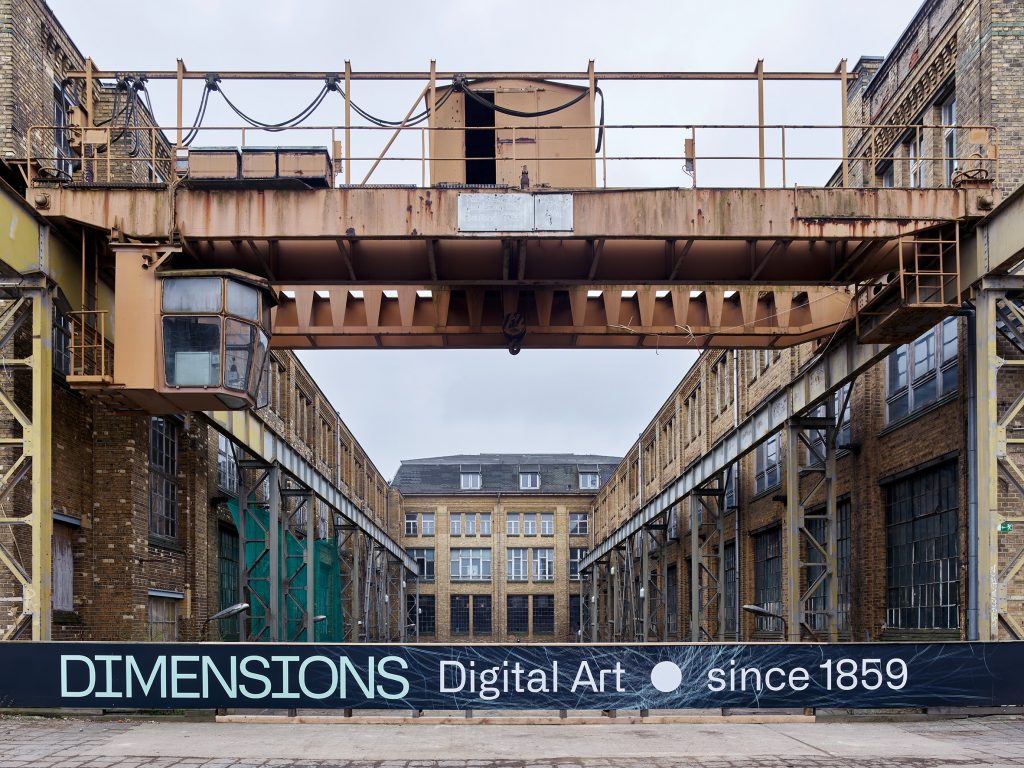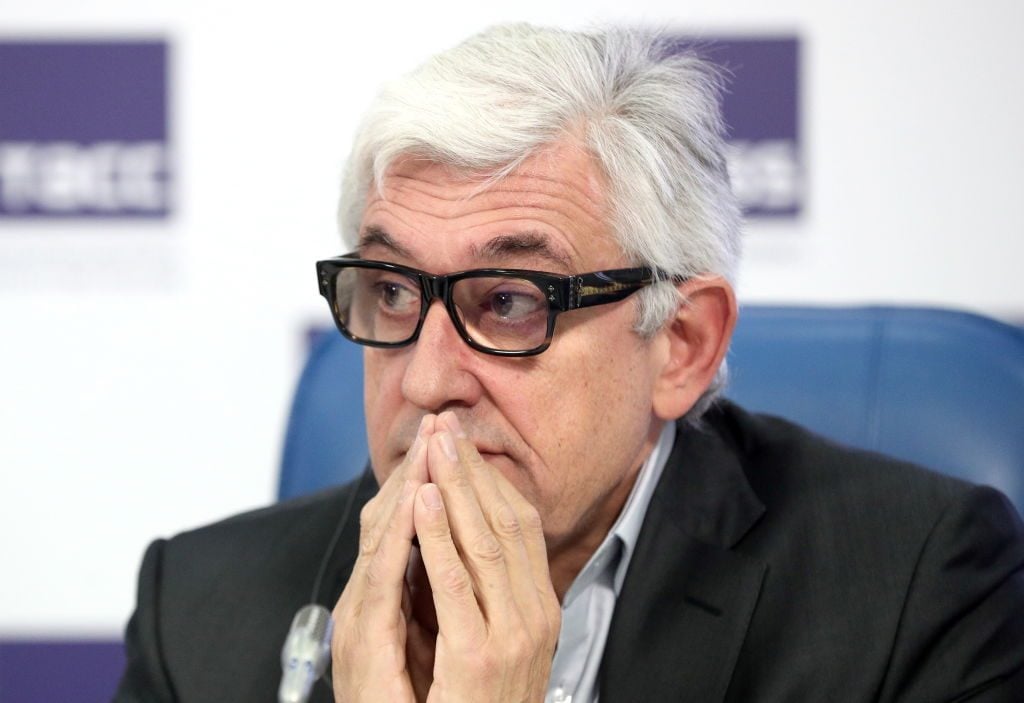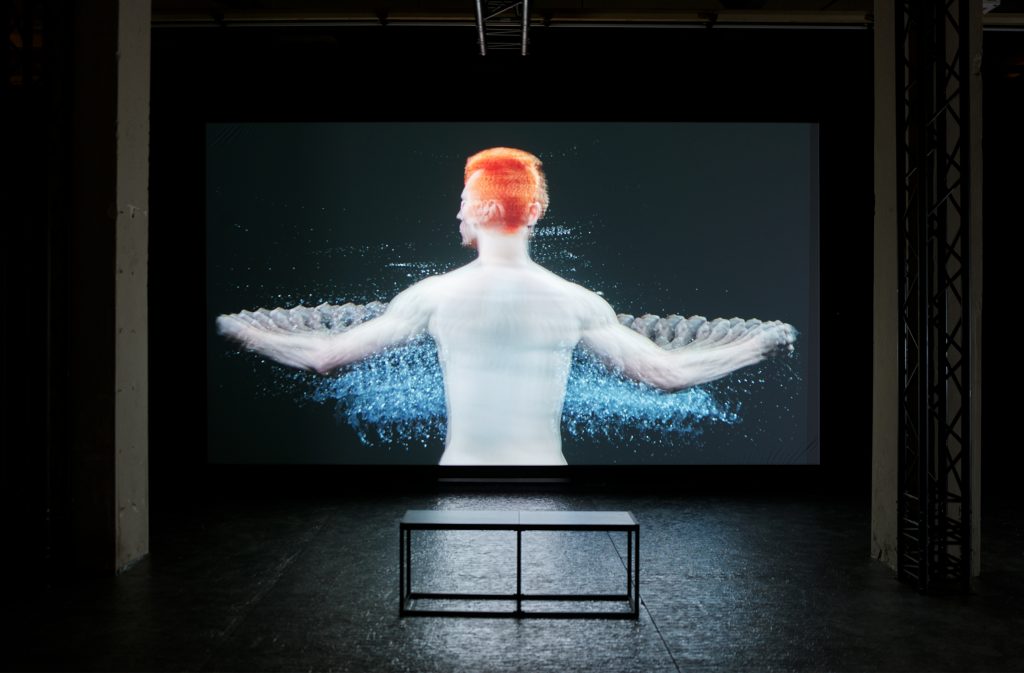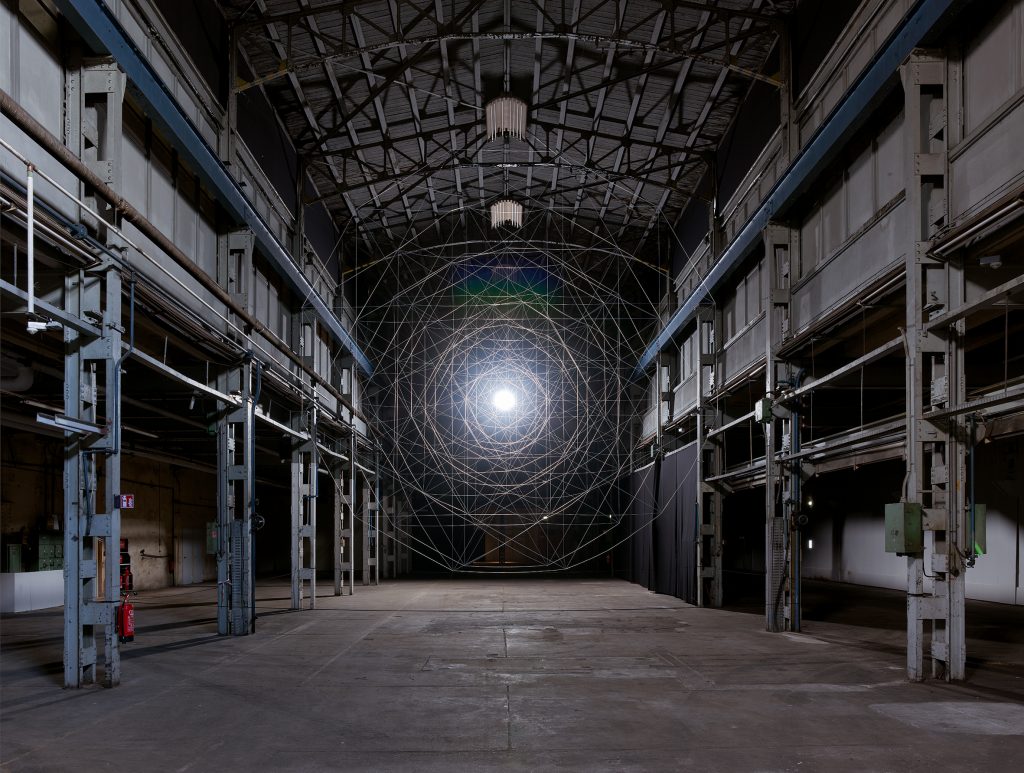Politics
600 Cultural Figures Have Signed an Open Letter Protesting an Art Exhibition Sponsored by Data Analytics Firm Palantir
The show was organized by Walter Smerling, a curator who has come under fire for his connections to toxic philanthropy.

The show was organized by Walter Smerling, a curator who has come under fire for his connections to toxic philanthropy.

Taylor Dafoe

Some 600 artists, academics, and others have signed an open letter condemning a digital art exhibition in Leipzig, Germany sponsored by Palantir, the controversial data analytics company whose products have been used for state surveillance and predictive policing.
The show, called “Dimensions — Digital Art since 1859,” purports to explore “how art has been shaped by the dialogue between new technologies and artistic forms of expression throughout history,” per a statement. Included is the work of Refik Anadol, Nam June Paik, and 40-some other artists from the 19th century to today.
The event was organized by Walter Smerling, an independent German curator who has previously come under fire for relying on what some critics call toxic philanthropy and shady political relationships. (One writer dubbed this pattern the “Smerling System.”) His 2021 exhibition, “Diversity United,” counted Vladimir Putin and several right-wing German politicians among its sponsors.
“Dimensions” was staged through Smerling’s non-profit organization, Stiftung für Kunst und Kultur. A spokesperson for the show declined to disclose budget numbers “due to the private nature of the project.”

Walter Smerling, chairman of the Foundation for Art and Culture (Germany), during a press conference on the Diversity United international project and exhibition of modern European art, at the TASS Russian News Agency. Photo: Mikhail Tereshchenko/TASS.
Published this week, the open letter detailed Smerling’s tainted exhibition efforts and called Palantir’s involvement in the show a form of “art washing.” It concluded with a list of demands, including stronger support for independent art by the city of Leipzig and the “development of ethical guidelines for the financing and promotion of art exhibitions.”
The letter was penned by five Leipzig-based cultural workers: Charlotte Eifler, Su Yu Hsin, Francis Hunger, Gabriel S. Moses, and Alexa Steinbrück. Since going live, it has been signed by hundreds of others, artists Hito Steyerl, Candice Breitz, and Rafael Lozano-Hemmer among them.
When reached for comment, Smerling said the letter “contains numerous contentious claims, and openly questions the ethics of both the Stiftung für Kunst und Kultur and the sponsors of the exhibition without…making any effort to engage with either directly.” This, he said, is “an attitude that I find difficult to comprehend.”

Emmanuel Carlier, The man with red hair (1993). © Stiftung für Kunst und Kultur e.V. Photo: Alexander Schippel.
The missive also calls out the exhibition’s supposed lack of engagement with the social issues endemic to the development of digital technology, such as stock market speculation and the corporate “atomizing of labor to optimize employee performance.”
“The show ‘Dimensions’ appears to be an attempt to distract the public from any political dimension of the digital by negotiating the history of the digital primarily as an aesthetic phenomenon,” the document reads. “That way, any questions about democratic control of surveillance technologies and the appropriation of data by corporations like Palantir may hopefully be evaded.”
“Numerous artists present in the exhibition take part in ongoing conversations about digital art,” Smerling countered. “Hence the statement that ‘Dimensions’ presents art that merely ‘pretends’ to participate in discourse is demonstrably false.”

Installation view of Ivana Franke’s Entanglement is a Fragile State (2012-2023). © Stiftung für Kunst und Kultur e.V. Photo: Alexander Schippel.
Co-founded by the right-wing entrepreneur and venture capitalist Peter Thiel, Palantir has faced frequent backlash for its proprietary technologies, which have been used by governments to investigate and police citizens. Earlier this year, the German Federal Constitutional Court imposed new restrictions on the use of data mining by police forces, causing states to reconsider their use of Palantir products.
The open letter suggested that the company agreed to sponsor “Dimensions” in an effort to burnish its reputation in the country. “If, like Palantir, your hands appear dirty or at least your image seems tarnished, one redeeming way to attract public attention would be to sponsor an art exhibition,” reads the document.
In response to this point, Smerling said that “the companies sponsoring the exhibition do not ‘evade public scrutiny.’ To the contrary, the mere fact that they are sponsoring this exhibition demonstrates that they are open to public scrutiny and both sponsors publicly emphasized their hope that the exhibition will be a forum for critical debate and discussion.”